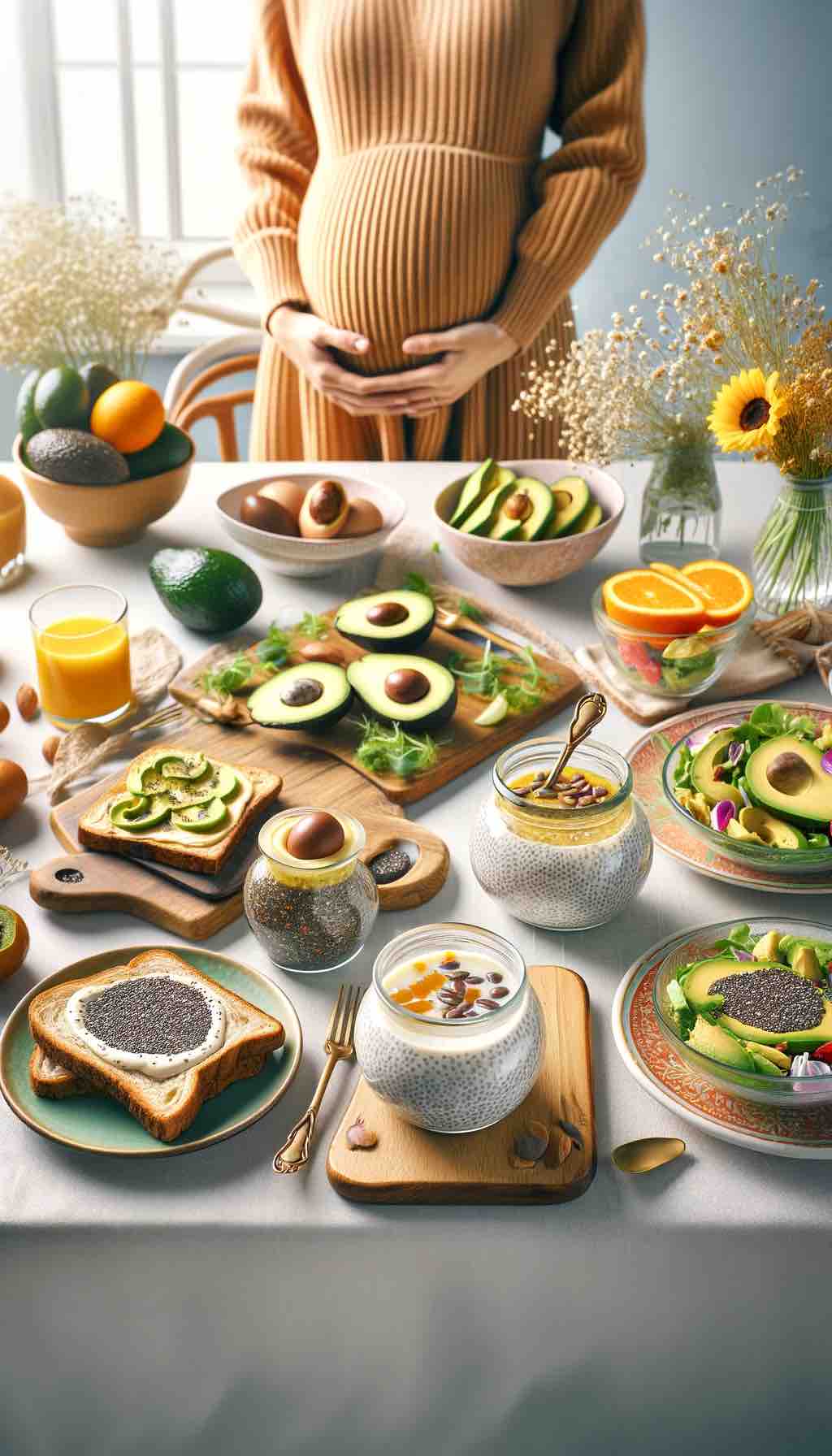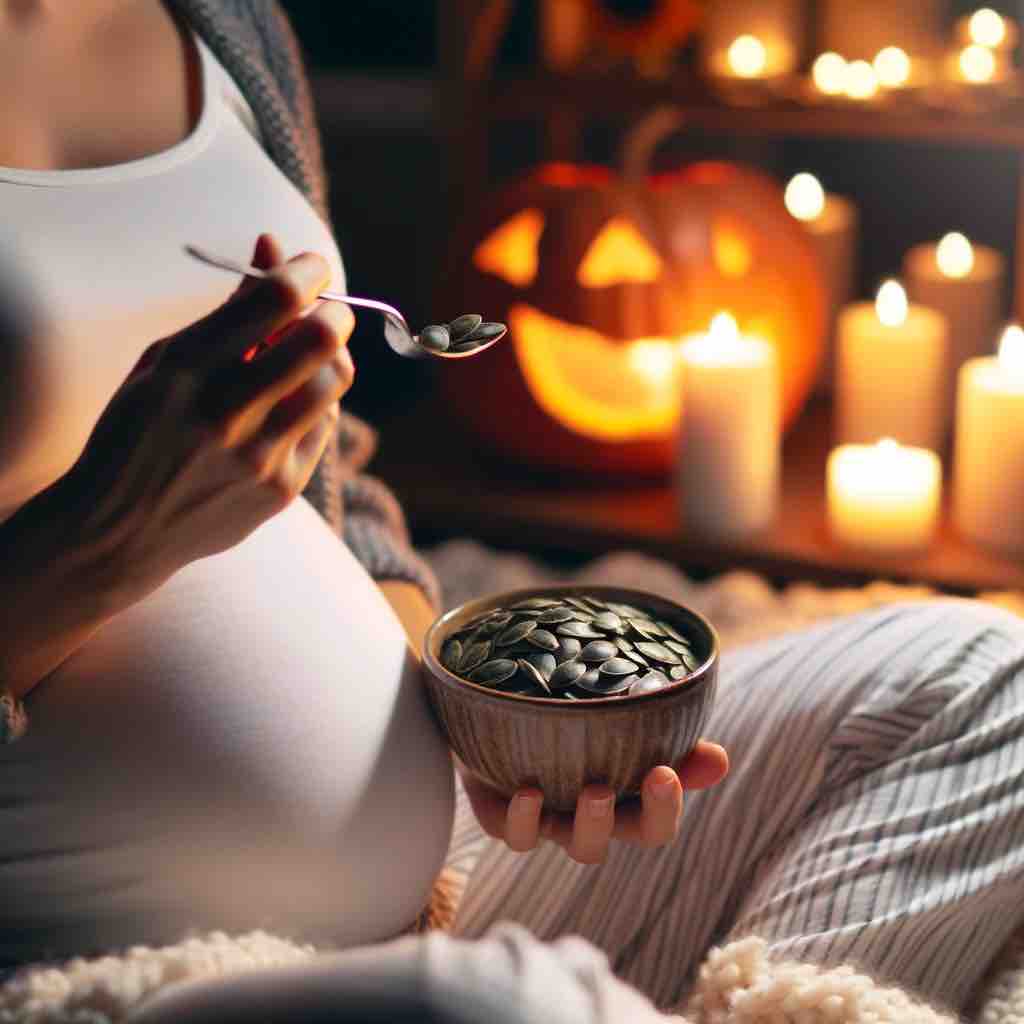
Introduction: Nourishing Two Lives with Every Bite
Embarking on the journey of motherhood? Nutrition is your best companion. Dive into the world of Omega-rich chia and avocado – superfoods that redefine prenatal nutrition. This guide is your one-stop source for crafting delicious, nutrient-packed meals, ensuring you and your little one thrive.
1. Why Omega-3s are Your Pregnancy Superheroes
Omega-3 fatty acids are more than just nutrients; they are the building blocks for your baby’s brain and vision development. And for you? They’re a shield against inflammation and a source of vitality. But here’s the twist – our bodies can’t make them. Enter chia seeds and avocados, your Omega-3 champions.
2. Breakfast of Champions: Chia and Berry Breakfast Pudding
Recipe Highlight: Soak chia seeds in almond milk overnight, then top with a vibrant mix of berries.
Why It’s Great: Start your day with a fiber, protein, and omega-3 boost. The berries add a punch of antioxidants and natural sweetness, making it a breakfast that’s as delicious as it is nutritious.
3. The Ultimate Lunch: Avocado and Egg Toast
Recipe Highlight: Creamy avocado spread over whole-grain toast, topped with perfectly cooked eggs and a sprinkle of chia seeds.
Why It’s Great: This power-packed lunch balances healthy fats, protein, and fiber. It’s quick, filling, and keeps those pregnancy cravings at bay.
4. Dinner Delight: Spinach, Avocado, and Walnut Salad
Recipe Highlight: Toss fresh spinach, diced avocado, and crunchy walnuts with a zesty dressing.
Why It’s Great: Folate-rich spinach meets omega-packed walnuts and avocado, creating a salad that’s a powerhouse of pregnancy nutrition.
5. Snack Time Hero: Tropical Chia Smoothie
Recipe Highlight: Blend chia seeds with coconut water, pineapple, banana, and a handful of spinach.
Why It’s Great: Hydrate and nourish with this tropical delight. It’s the perfect pick-me-up snack that’s packed with vitamins and natural sweetness.
6. Wrap it Up: Avocado and Black Bean Wrap
Recipe Highlight: A hearty wrap filled with avocado, black beans, tomatoes, and a hint of lime.
Why It’s Great: This wrap is a fusion of taste and nutrition. Black beans add plant-based protein and fiber, while avocado brings in healthy fats.
7. The Nutrition Behind the Deliciousness
Each of these meals is a blend of taste and health. Chia seeds and avocados are not just safe but essential during pregnancy, offering a wealth of nutrients. From brain development to digestive health, they cover all bases.
8. Beyond the Plate: Your Pregnancy Nutrition FAQs Answered
Q: How often should I include these foods in my diet?
A: Daily! Chia and avocado are versatile and can be included in various meals.
Q: Can these foods reduce pregnancy complications?
A: Yes, a diet rich in omega-3s is linked to reduced risks of preterm labor and preeclampsia.
Q: What about postpartum benefits?
A: Omega-3s aid in postpartum recovery and can help balance mood, crucial for new mothers.
Conclusion: A Journey of Flavor and Health
Remember, pregnancy is a phase where you’re eating for two. These omega-rich recipes are your toolkit for a journey filled with taste, health, and joy. Indulge in these delightful meals and embark on a path of nutritious and delicious motherhood!
Join the Conversation
Share your favorite pregnancy recipes or tips in the comments. Let’s support each other in this beautiful journey of motherhood!













